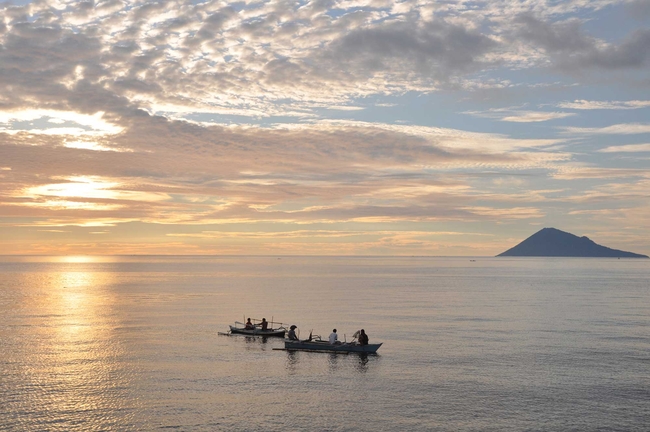06/03/2023 | Over the weekend, the United Nations agreed the first international treaty to protect the high seas. For more than 10 years, UN member states had been negotiating such an agreement to protect biodiversity in the high seas (Marine Biodiversity of Areas Beyond National Jurisdiction - BBNJ). Raimund Bleischwitz, sustainability researcher and scientific director of the Leibniz Centre for Tropical Marine Research (ZMT) in Bremen, Germany, sees yesterday's agreement as an "extremely important and long overdue step towards the protection of marine biodiversity".
"The decision for an international agreement on marine conservation is a real breakthrough in difficult geopolitical times," Bleischwitz said. "Under the agreement, 30% of the world's seas and oceans will be set aside as protected areas. This is a great success for the implementation of the 30x30 target of the United Nations, which was agreed only recently at the World Conference on Nature in Montreal".
An important part of the agreement is procedures for assessing the environmental impact of economic ventures, expeditions and other activities in the oceans. "I think this is a very positive development. Until now, the high seas - two-thirds of the oceans - have been considered the Wild West of the seas," says Bleischwitz. "In the future, all actors on the world's oceans will have to take environmental criteria into account in their projects - in fishing or deep-sea mining as well as in research projects on the high seas."
Bleischwitz welcomes the progress made on the contentious issue of how profits and benefits from the use of marine genetic resources should be shared between the Global North and the Global South. "The promised participation and compensation for the countries of the Global South is a good step in the right direction, for example the planned fund, which should also include revenues from companies that make profits from the use of marine genetic resources," says the sustainability researcher from Bremen.
He still sees difficulties in implementing the agreement: "There is still a lot to be done to define the exact framework conditions for marine projects, but also to ensure compliance," says Bleischwitz. "This also requires accompanying research on standards, comparative implementation and possibilities for improvement."
There were also positive signals for marine protection at the recent "Our Oceans" conference in Panama. Many governments pledged a total of $19 billion to protect the world's oceans. Six billion comes from the US, while the European Union has pledged 816.5 million euros. The UK plans to contribute £24 million to the Global Fund for Coral Reefs, as well as private equity funds.
In Australia, the government recently announced plans to triple the size of the Macquarie Island Marine Park. The aim is to protect the entire exclusive economic zone around the island in the southwest Pacific, which lies between New Zealand and Antarctica. With the additional area - twice the size of the Australian state of Victoria and larger than Germany - the marine parks would cover 48.2% of Australia's oceans, according to the Australian government.
Meanwhile, Germany is stepping up its commitment to the UN Decade as the newest member of the Ocean Decade Alliance, a group of institutions committed to global efforts to mobilise resources for ocean research as part of the UN Decade of Ocean Science for Sustainable Development.
Raimund Bleischwitz is hopeful about the current progress at national and international level: "Rarely do we get so much good news for the environment in such a short time, so it is worth pausing for a moment and letting it sink in," says the economist. "Although there are still many hurdles to overcome in the fight against climate change and to reach the 1.5 degree target, I am definitely positive about the future. The new agreements provide a good basis for the future establishment of a World Ocean Council (International Panel on Ocean Sustainability - IPOS), as has already been called for by some influential stakeholders in the research community," says the ZMT director. "In the medium term, it would also be desirable to establish a World Ocean Organisation along the lines of the German Advisory Council on Global Change (WBGU), consisting of government agencies and key stakeholders, including environmental organisations, to further advance the principles of sustainable ocean governance."





